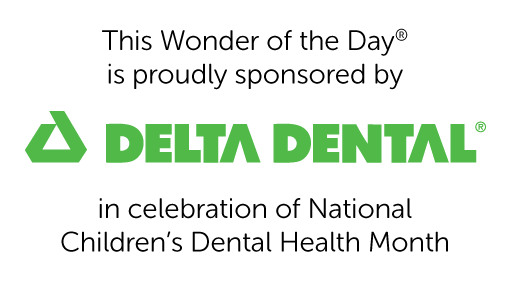Today’s Wonder of the Day was inspired by Mrs. Weber from Williamsville, NY. Mrs. Weber Wonders, “How do our teeth become sensitive?” Thanks for WONDERing with us, Mrs. Weber !
After you've been playing in the hot summer sunshine for several hours, there's nothing quite like a tall glass of ice-cold lemonade. As the lemonade cascades out of the pitcher and falls into your glass, you can almost taste its tangy flavor as it lifts the ice cubes to the top.
When you raise the glass to your lips and tip it back, however, the pleasure of your thirst being quenched is tempered by a sudden pain. As the ice-cold liquid hits your teeth, they begin to throb with an uncomfortable feeling.
If you've ever experienced this sensation, then you may have an issue shared by millions of other people: sensitive teeth. It's a common problem that as many as 40 million Americans have dealt with.
If you have a sensitive tooth — or multiple teeth — you may experience feelings of pain when you eat or drink something cold, hot, sweet, or sour. Sometimes even a deep breath of cold air can trigger throbbing pain. Direct pressure on the affected teeth can also cause pain, especially when biting or chewing.
Tooth sensitivity usually occurs in teeth from which your gums have receded, exposing the layer of dentin underneath. When the layer of dentin is exposed, certain things, such as hot or cold foods and drinks, can irritate the nerves that can be found in the pulp under the dentin.
Dental experts have identified several other factors that contribute to sensitive teeth. For example, brushing your teeth too hard or using a hard-bristled brush can wear down the enamel on your teeth, exposing the dentin underneath.
Likewise, tooth decay, gum disease, grinding your teeth, and plaque buildup can also cause damage that results in tooth sensitivity. Researchers also believe that some tooth-whitening products that have been developed recently may contribute to increased tooth sensitivity.
Tooth sensitivity may also be related to what you eat and drink. Foods that are highly acidic, such as sodas, tea, pickles, tomatoes, and citrus fruits, can also wear down enamel over time, leading to increased tooth sensitivity.
If your teeth become sensitive, is there anything you can do? Fortunately, the answer is yes. Dental experts have identified a number of ways to help reduce the pain associated with sensitive teeth.
Regular brushing, flossing, and rinsing with a fluoride mouthwash will help keep your overall oral health in tip-top shape. Using a soft-bristled brush and being careful around your gum line will help reduce the chance of receding gums.
Watching what you eat and drink can help, too. Avoiding foods that are highly acidic can help maintain the enamel on your teeth.
There are also several dental products you can use. A trip to your local pharmacy or grocery store will reveal several brands of toothpastes specially formulated to help sensitive teeth. Making sure your mouthwash has fluoride also helps to protect against sensitivity.
If tooth sensitivity becomes a persistent problem, you should definitely schedule an appointment with your dentist to evaluate and address your concerns. Your dentist will be able to recommend the best treatment options for your sensitive teeth. For example, your dentist may recommend one of a variety of treatments, such as fillings, fluoride varnishes, or dentin sealers to cover and protect exposed root surfaces.





